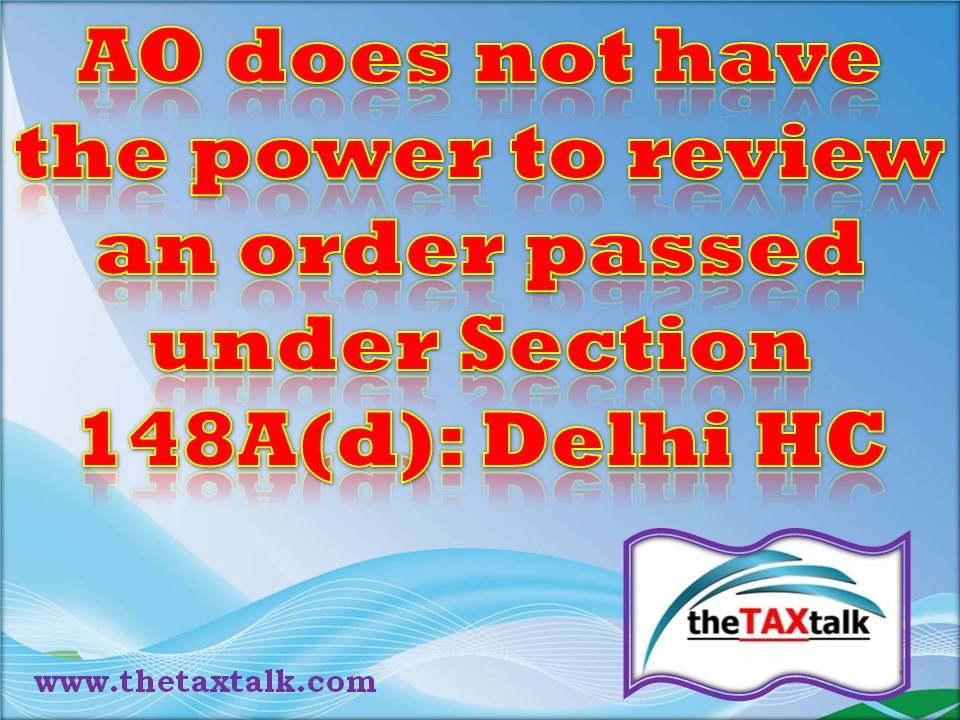![]()
AO does not have the power to review an order passed under Section 148A(d): Delhi HC
Baba Global Ltd. v. ACIT (W.P.(C) 1155/2024)
Facts:
1. AO has Issued a notice U/S 148A(b) of the Income Tax Act on 31.03.2023, citing remittances that were allegedly not in line with the return. The assessee replied on 12.04.2023, explaining that the transactions were genuine business receipts and were duly recorded in books.
2. AO passed an order U/S 148A(d) on 27.04.2023, accepting the assessee’s explanation and dropping proceedings. AO clearly stated that reassessment was not warranted. This order had prior approval of the Principal Commissioner (PCIT).
3. At 12:08 AM on 28.04.2023, a fresh notice under Section 148 was issued. At 12:31 AM, a second order under Section 148A(d) was sent, this time reversing the earlier view, claiming income of ₹20.55 lakh (forex fluctuation) had escaped assessment.
4. A corrigendum was issued declaring the earlier 148A(d) order as null and void. Revenue claimed that the original dropping order was “erroneously” passed and contrary to PCIT’s approval, hence rectified.
Hon Delhi HC held as below:
1. AO had no statutory power to review a concluded order under Section 148A(d). The second order was not a correction but a fresh evaluation, which is impermissible.
2. Though the 148A(b) notice was issued on 31.03.2023, the exclusion/extension under the provisos to Section 149 only allowed time till 27.04.2023.
3. The second order under Section 148A(d) and the consequent notice under Section 148 were set aside.
Note:
When is 148A(d) Order Issued?
The AO receives “information suggesting escapement of income”.
He issues a show cause notice under Section 148A(b) to the assessee.
The assessee submits a reply.
The AO then passes an order under Section 148A(d) stating whether reassessment is warranted followed by notice under Section 148, or proceedings are to be dropped.
The copy of the order is as under:


